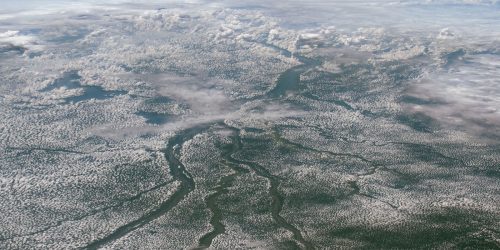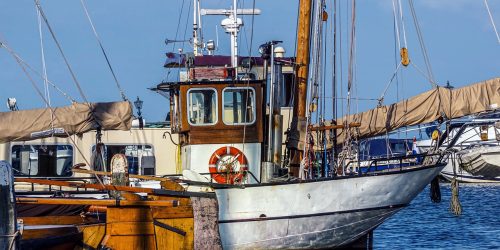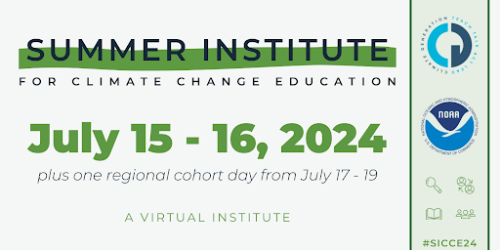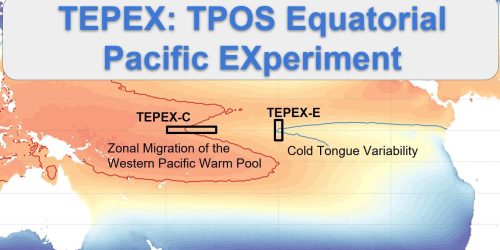
Long Term Trends in Observations of Atmospheric Composition
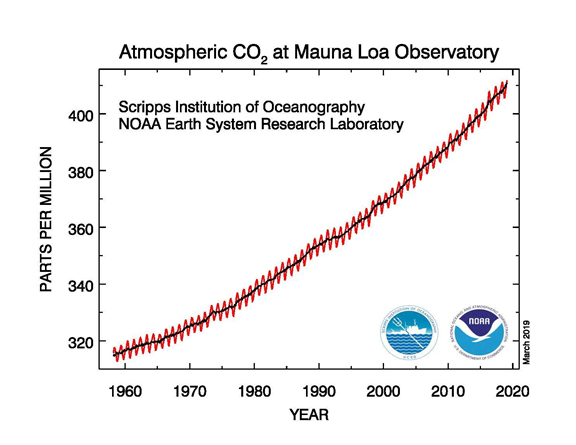

NOAA’s Sectoral Applications Research Program (SARP) is announcing four new one-year projects that aim to expand the capabilities of the National Integrated Drought Information System’s (NIDIS) regional Drought Early Warning Systems. The competitively selected projects total $673 thousand for grants.
Increasing U.S. Communities’ and Businesses’ Resilience to Extreme Events
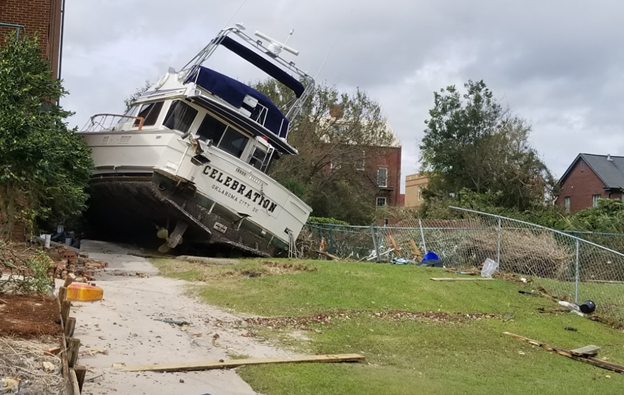

The NOAA Climate Program Office’s Communication, Education, and Engagement (CEE) Division is announcing four new one-year projects in Fiscal Year (FY) 2019 that will help U.S. local governments, communities, businesses, and other stakeholders adapt and increase resilience to climate-related impacts and extreme events. The competitively selected projects total $150,000 in awards.
Supporting Resilient Fishing Communities in the Northeast Region
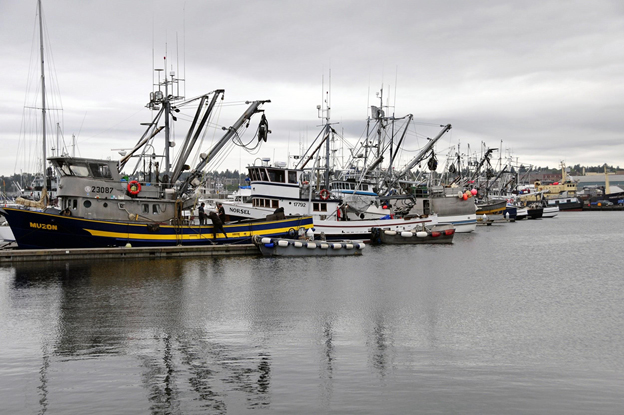

NOAA CPO’s Coastal and Ocean Climate Applications (COCA) Sustainable Fisheries in a Changing Climate Program is announcing five new projects to support resilient Northeast fishing communities. The new projects will improve understanding of socio-economic impacts from changing climate and ocean conditions on fishing communities from Cape Hatteras, NC through Maine. Ultimately, the results will help increase the capacity of fishing communities and fisheries managers to assess, prepare for and reduce risks.
Assessing and Communicating Economic Impacts and Risks Associated with Water Resource Management Challenges Along the Coast
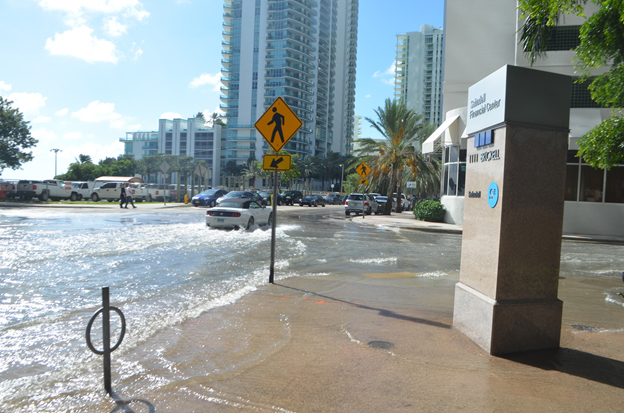

NOAA’s COCA and SARP Programs are announcing 11 new two-year projects that will help coastal communities grapple with and assess risks to their water resources management from high tide flooding, extreme precipitation events, and sea level rise. Inspired by work resulting from past SARP and COCA projects, this new research addresses the need to collaboratively identify and specify economic impacts of extreme weather and climate-related events in coastal areas. Project results will inform planning and responses necessary to support more resilient U.S. coastal communities and resources valuable to the blue economy. The competitively selected projects total $1.57 million.
Climate Process Teams – Transferring Understanding of Ocean and Atmospheric Processes into Climate Model Improvements
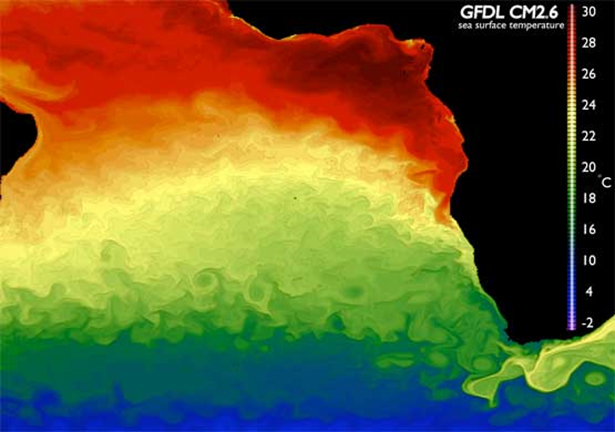

NOAA’s Climate Variability and Predictability (CVP) Program, in partnership with the National Science Foundation (NSF) and the Department of Energy (DOE), is announcing three new three-year Climate Process Team projects. These projects aim to accelerate improvements in representing oceanic and atmospheric processes in climate models through interdisciplinary research teams. The competitively selected projects total $2.3 million†, including $1.1 million in grants and $1.2 million in other awards.
Observing and Understanding Air-Sea Interactions in the Tropical Atlantic Ocean
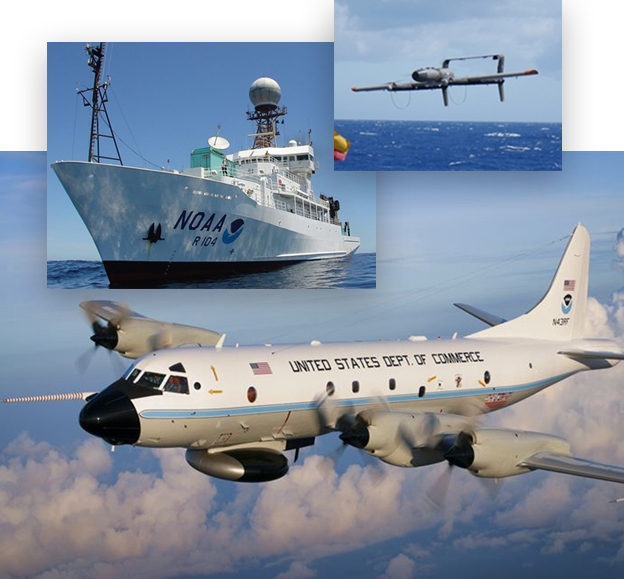

CVP is announcing ten new three-year projects in FY20 that aim to identify the state, mechanisms, and sources of climate predictability on the interannual to decadal timescale. This research will lead to future improvements in skillful decadal prediction systems for climate—ocean and atmosphere. The competitively selected projects total $6.78 million, including $6.22 million in grants and $556,000 in other awards.
21st Century Integrated U.S. Climate Predictions and Projections


NOAA’s MAPP Program is announcing 13 new two-year projects in FY19 that aim to use Coupled Model Intercomparison Project Phase 6 (CMIP6) results for improved projections of 21st century climate over the United States. The competitively-selected awards total $2.6M, including $2.4M in grants and $188K in other awards distributed over the lifetime of the projects.
Climate Process Teams – Translating Land Process Understanding to Improve Climate Models
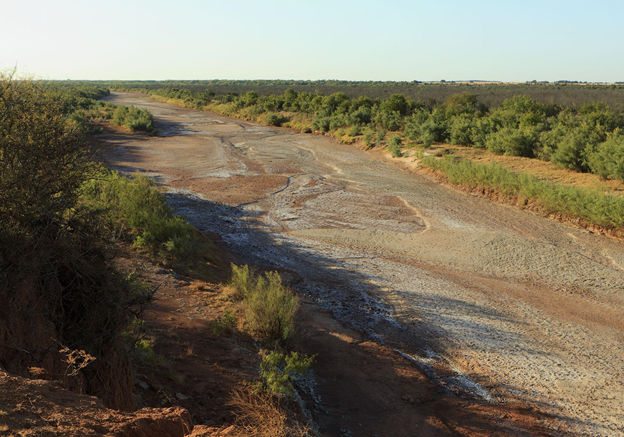

NOAA’s MAPP Program is announcing two new three-year projects, funded in collaboration with DOE, that aim to accelerate improvements in representing land-based processes as part of the climate system in NOAA models. The competitively selected awards total $2.7M including $1.5M in grants and $1.2M in other awards.
Coping with Drought in Support of the National Integrated Drought Information System
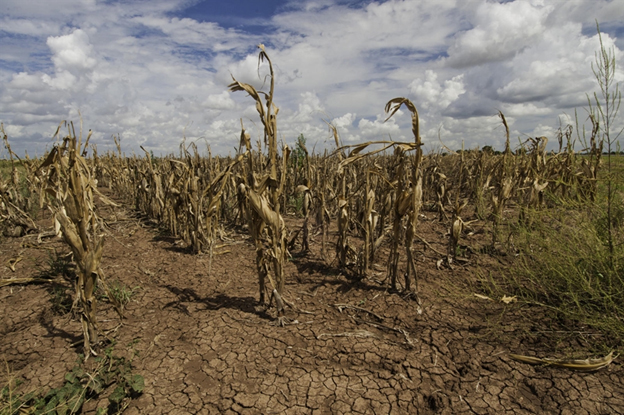

NOAA’s Sectoral Applications Research Program (SARP) is announcing four new one-year projects that aim to expand the capabilities of the National Integrated Drought Information System’s (NIDIS) regional Drought Early Warning Systems. The competitively selected projects total $673 thousand for grants.
NOAA’s Climate Program Office (CPO), part of NOAA’s Office of Oceanic and Atmospheric Research, is announcing a total of $22.8 million in competitive awards to support 62 new projects 1. The diverse set of new projects ranges from explaining long-term trends in atmospheric composition to supporting resiliency in fishing communities.
Universities and other research institutions spread across 31 states, alongside other federal agencies in close collaboration with NOAA, will conduct the projects over the next 1-3 years. Selected in an open, competitive peer-review process, the projects are designed to improve our ability to describe our changing environment; to advance understanding, modeling, and prediction of the climate system; and to foster effective decision making in the face of a changing climate and rising impacts. These projects all significantly extend NOAA’s climate research, products, and services, and engage the broad research community with issues at the crux of NOAA’s mission.
“The cost of extreme weather and climate events is escalating, driving Americans to increasingly turn to NOAA for actionable climate information,” said Wayne Higgins, Director of CPO. “With these new awards, we’re advancing the foundational climate and decision science needed to better understand and predict our changing climate and its impacts. These activities will help put critical authoritative information into the hands of people who need it to better plan and respond.”
Some anticipated project outcomes include improved projections of 21st-century climate, enhanced capacity of fishing communities to assess climate-driven socio-economic risks and impacts, more accurate representation of Earth-system processes in climate models, a better understanding of trends in our long-term observational records, and increased resilience to extreme events. Ultimately, these investments in mission-driven research and development will help support U.S. national security, economic vitality, and public welfare.
Through a robust peer-review process, CPO’s competitive research programs fund the best projects and brightest minds from research labs and academia, offering opportunities for NOAA to collaborate with outside experts who bring fresh perspectives to the agency. CPO’s four major research areas include: observations and monitoring; Earth system science and modeling; climate and societal interactions; and communication, education, and engagement. While each program area has its own focus, together they demonstrate NOAA’s commitment to advancing integrated climate research and enhancing society’s ability to plan and respond to climate variability and climate change across timescales.
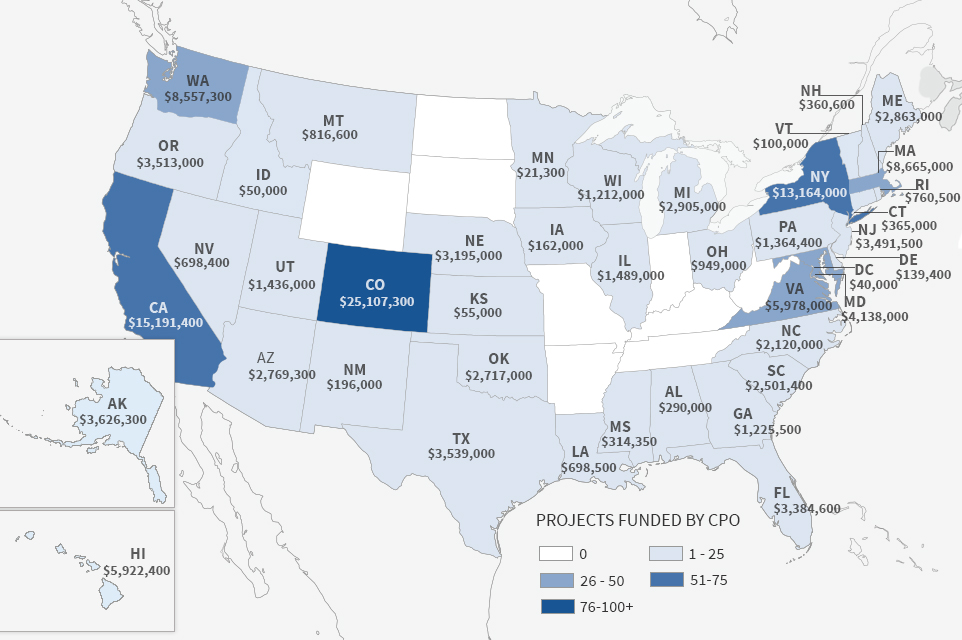

1The funding will be distributed over the life of the projects. Future-year funding is conditional on appropriation of funds. The numbers of people funded by each award include those funded in whole and in part.


